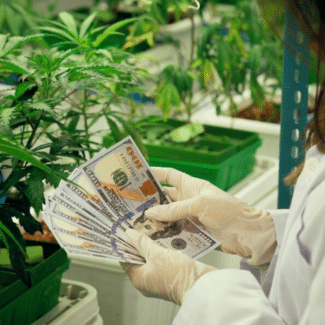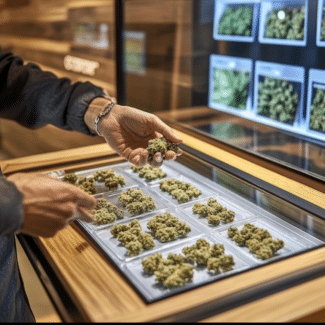- Article Summary
- 280E Deductions and COGs
Much appreciation to our friends at Würk who contributed this guest post to our blog.
Section 280E was initially introduced in 1982 with the anticipation of targeting illegal drug trafficking activities. Consequently, it has had a significant impact on state-legalized cannabis businesses due to the federal classification of marijuana as a Schedule I controlled substance. Therefore, cannabis companies, though operating in compliance with state regulations, often face substantial tax burdens leading to higher effective tax rates when compared to other industries.
The restrictions imposed by Section 280E can create profitability challenges and hinder these businesses from competing on an equal footing with others. If you’re interested in a detailed analysis, you can refer to this Guide to IRS Tax Code 280E for Marijuana Businesses for more information.
280E Deductions and COGs
Section 280E creates challenges for cannabis businesses by limiting their ability to deduct ordinary expenses, resulting in higher tax rates. Understanding which costs of goods sold (COGS) can be deducted under Section 280E can be confusing. This aspect of the law is still evolving, but this downloadable factsheet is available to provide a few helpful tips in navigating the complexities of 280E. We also highly recommend consulting with a tax professional familiar with the intricacies of the cannabis industry.
To fully comprehend the impact of Section 280E on the cannabis industry, it is important to have a comprehensive understanding of the industry’s structure and the seed-to-sale concept. Within the cannabis industry, different verticals are categorized based on their specific functions.
Cultivation / Grow
Cultivators are responsible for selecting and breeding specific strains, germinating seeds, nurturing plants throughout their growth stages, and harvesting cannabis flowers or other plant parts. While costs directly associated with the production of cannabis (i.e., seeds, fertilizers, and utilities) may be eligible for deduction as part of the COGS, other ordinary business expenses like labor, rent, marketing, and administrative costs cannot be.
Processing / Manufacturing
This vertical focuses on transforming harvested cannabis plants into a wide range of products. Their day-to-day operations include drying, curing, extracting cannabinoids, refining extracts, and creating infused products like edibles, oils, tinctures, and topicals. Expenses related to the production and manufacturing process may be included in COGS. However, deductions for other operational costs (i.e., equipment, salaries, packaging, and quality testing) aren’t usually allowed.
Retail / Distributor
A retail operation is responsible for the sale and distribution of cannabis products to consumers. This means owning and overseeing dispensaries where consumers can legally purchase these products. Distribution may also involve logistics, inventory management, and compliance with local regulations. Since 280E is directly related to selling or the “trafficking” of cannabis-related products, it tends to impact retail operations the most. Expenses related to the operation of dispensaries, including rent, employee salaries, advertising, security, and other overhead costs, are generally not deductible, except for those that qualify as cost of goods sold (COGS).
Vertically Integrated
A marijuana business might also be vertically integrated which means it is licensed in every area of the cannabis life cycle. These companies grow, produce, and sell their own products. By having control over multiple stages of the supply chain, a vertically integrated company can maintain quality control to their standards and streamline operations. At the same time, this type of company has a broader range of expenses than companies who might choose to specialize, thus making deductions and COGs more complex to identify and organize.
Overall, Section 280E poses significant challenges for businesses in the cannabis industry, limiting their ability to deduct ordinary business expenses and resulting in higher effective tax rates. It is important for businesses in the cannabis industry to carefully navigate and comply with the provisions of Section 280E to minimize their tax liabilities and ensure proper financial planning.
Thus industry-specific cannabis software and systems could be a great option as they’re built to support the complex marijuana regulatory environment and its many tax intricacies.
Protecting your cannabis company can seem confusing; however, we’re a full-service insurance brokerage working with carriers worldwide to offer you the best coverage possible. We’re here to help! Please reach out to us today by emailing [email protected] or calling 646-854-1093 for a customized letter of commitment or learning more about your cannabis insurance options.
This guest article was co-written by Zaire D. Bethea, Tax Manager, and Nikolina Mrkalj, Marketing Specialist at Wurk.”







